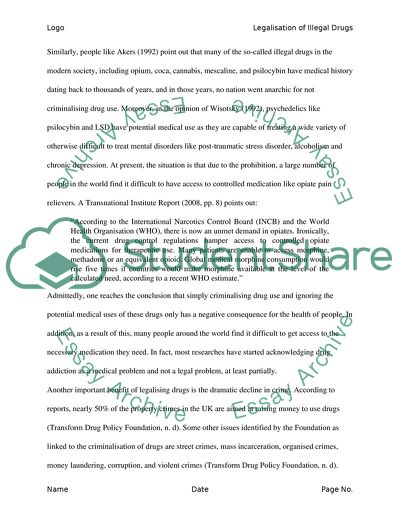Cite this document
(Should Illegal Drugs Be Legalized Research Paper, n.d.)
Should Illegal Drugs Be Legalized Research Paper. Retrieved from https://studentshare.org/social-science/1817081-1critically-discuss-the-view-that-illegal-drugs-should-be-legalised-how-should-drug-use-be-managed-ie-as-a-criminal-medical-andor-social-issue
Should Illegal Drugs Be Legalized Research Paper. Retrieved from https://studentshare.org/social-science/1817081-1critically-discuss-the-view-that-illegal-drugs-should-be-legalised-how-should-drug-use-be-managed-ie-as-a-criminal-medical-andor-social-issue
(Should Illegal Drugs Be Legalized Research Paper)
Should Illegal Drugs Be Legalized Research Paper. https://studentshare.org/social-science/1817081-1critically-discuss-the-view-that-illegal-drugs-should-be-legalised-how-should-drug-use-be-managed-ie-as-a-criminal-medical-andor-social-issue.
Should Illegal Drugs Be Legalized Research Paper. https://studentshare.org/social-science/1817081-1critically-discuss-the-view-that-illegal-drugs-should-be-legalised-how-should-drug-use-be-managed-ie-as-a-criminal-medical-andor-social-issue.
“Should Illegal Drugs Be Legalized Research Paper”, n.d. https://studentshare.org/social-science/1817081-1critically-discuss-the-view-that-illegal-drugs-should-be-legalised-how-should-drug-use-be-managed-ie-as-a-criminal-medical-andor-social-issue.


